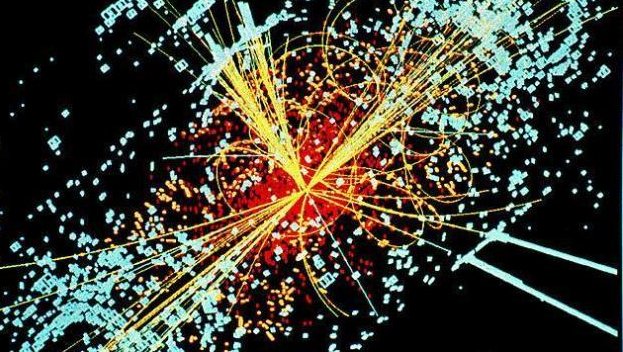CERN's simulated data example of a collision between two protons producing a Higgs boson. (Image credit: CERN)
The discovery that so thrilled the scientific community last year may have opened the door to a glimpse of the future: the end of the world (and the universe) as we know it.
At the annual meeting of the American Association for the Advancement of Science this week, scientists worried the Higgs boston particle--sometimes called the "God particle"--may confirm a universe-ending disaster billions of years in the future.
"This calculation tells you that many tens of billions of years from now there'll be a catastrophe," said Joseph Lykken, a theoretical physicist at the Fermi National Accelerator Laboratory in Batavia, Ill, according to LiveScience.
"It may be the universe we live in is inherently unstable, and at some point billions of years from now it's all going to get wiped out."
Lykken knows what he's talking about: he's a collaborator on some of the experiments at the Tetravon accelerator at Fermilab, a device similar to the Large Hadron Collider at CERN in Switzerland where the particle believed to be the Higgs boson was discovered last year.
The mysterious Higgs was the subject of such a furious search because it offered scientists the chance to tests theories on how particles get mass. It also helps explain the the fundamental instability of the universe: its mass is more than 100 times that of a proton, or just about the size needed to cause that instability.
"The mass of the Higgs is related to how stable the [universe's space-time] vacuum is," said Christopher Hill, Lykken's colleague at Fermi. "It's right along the critical line. That could either be a cosmic coincidence, or it could be that there's some physics that's causing that. That's something new, which we didn't know before."
So, it turns out the "God particle" was even more aptly named than previously thought: it not only giveth the universe mass, it may someday taketh it away, too.







